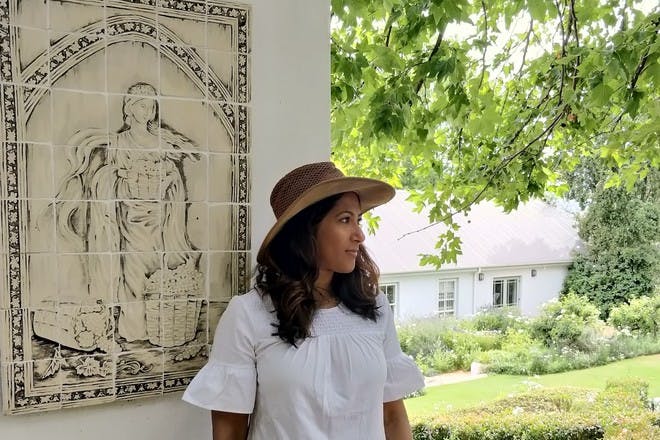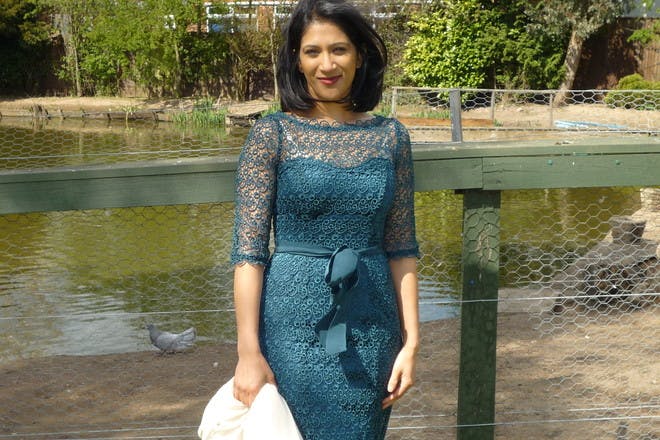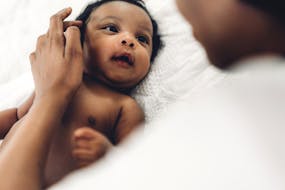Netmums Voices: 'Why it’s time we bust the myth that IVF is just for middle-class white people'
British Asian food writer Seetal Savla has been trying for a baby for four years – a struggle made harder by a cultural legacy that sees it as a ‘dirty secret’.
This page contains affiliate links, which means we may earn a small amount of money if a reader clicks through and makes a purchase. All our articles and reviews are written independently by the Netmums editorial team.
My husband and I have been married and childless for almost 11 years.
This was intentional during the first half of our marriage, but over the past four years, we have undergone three unsuccessful IVF cycles – one on the NHS and two rounds at a private clinic.
Long before we started trying for a baby, Indian relatives would interrogate us about our plans. Some explicitly told us that time wasn’t on our side (we tied the knot in our mid-twenties, so we weren’t over the hill by any means), while older relatives could be painfully insensitive – why the delay?
I squirmed and skirted around the inquisitions. Why would I want to confide in them? They didn’t understand, did they?
A cultural silence
Indian women didn’t talk about their infertility in the media when I was growing up, and neither did anyone in my family.
Over time, I’ve learned that many relatives have been affected and resorted to alternate routes to parenthood: a cousin who became an egg donor for her sister; another who spent years in India to adopt her daughter.
But none of this was ever openly discussed.
As a patriarchal society, anything related to sex, periods or illnesses affecting women is strictly out of bounds in my culture.
Not only can we not discuss it, it’s not to be seen at all: menstruating women are shunned from places of worship; films rarely represent the physical realities of a relationship and medical issues are kept quiet.
One of my aunts recently revealed that when her breast cancer was diagnosed in her forties, she only told immediate family because she was concerned that the news would damage her nieces’ and nephews’ status – a close relative developing a disease at a young age would be a black mark against them, due to the increased chances of it cropping up again later in their own families.
Personal shame
Added to the cultural baggage, infertility also leaves you with an immense sense of personal shame; being unable to do what nature intended is very hard to accept.
You assume before you start trying that your future will feature children yet, when the time comes and life has other plans, it can evoke a great amount of guilt.
Guilt about not trying to start a family sooner, which gave us less time to explore more options, and guilt about being slightly dismissive of my husband’s desire for a baby, as at that time I was fearful of losing my independence and identity.
Talking about your infertility means having to publicly own that failure. I experienced huge conflict about ‘coming clean’ because I didn’t want anyone’s pity, or to have to shoulder their disappointment, as well as my own, after a failed cycle.
However, after baring all in a lengthy blog post, I was overwhelmed by the messages of support that I received from our cousins, uncles, aunts and family friends from all corners of the world.
Since we have been childless for over a decade, they had suspected that we were struggling to conceive, and once I opened up many shared their own stories of infertility and how they coped.
Vital progress
Thanks to key Bollywood stars speaking up about their own fertility struggles – choreographer and director Farah Khan having IVF in her 40s; actress Sushmita Sen adopting two daughters alone, and actor and director Aamir Khan choosing surrogacy after miscarriage – infertility in the Indian community is now starting to shed its ‘dirty secret’ shroud.
These celebrities look like us and understand the values, traditions and expectations of our society, albeit from a more privileged position.
Seeing these household names embrace their vulnerabilities is vital for the Indian community: it educates the older generation and legitimises the journeys of those, like me, who are battling with infertility, helping us feel less flawed.
I’m fortunate to have support around me, but even so, every story told by a high-profile figure comforts me; it’s reassuring to know that infertility doesn’t discriminate.
Why speaking up matters
After writing about my own harrowing experience of miscarriage and IVF, I was surprised and saddened to learn that so many friends and relatives had been going through a similar ordeal for years ...
Being told that they’re unable to have children; repeatedly travelling to clinics abroad for egg and sperm donations; freezing eggs and doing IVF alone as they hadn’t found the right partner yet, the physical and emotional turmoil of multiple miscarriages, ectopic pregnancies and abortions.
And yet we need more of us to speak up.
Having more Indians in panel discussions, podcasts and documentaries about infertility would chip away at the barriers and provide support to those who aren’t ready to talk, or prefer not to.
Seeing people who look like you, sound like you and face similar cultural challenges makes you feel heard and validated.
At this year’s Fertility Festival , a Race, Religion and Reproduction workshop gathered people of colour of all ages and backgrounds to share stories and discuss how they could become a bigger part of the infertility narrative.
Along with education and training, most agreed that the media needs to take a more active role.
The audience included Indian women, British and American black women, Pakistani women, as well as a British-Chinese woman.
One black lady said that women in her community are perceived as being very fertile and being unable to have a child has made her feel unworthy and useless.
Yet we have to recognise the media isn’t entirely to blame: how can it cover something about which our communities have been tight-lipped for years?
I couldn’t criticise Indians for shying away from these conversations without doing my part to destigmatise infertility.
Which is why I’m speaking up now.
What I’ve learnt about infertility …
Is that it isn’t fair, but I’m not alone and I’m lucky to have options.
If I could tell someone going through infertility one thing …
Do things that make you happy and remind yourself that infertility doesn’t define you.
My infertility hero is …
Irina Vodar , a Russian filmmaker who documented her 10-year battle with infertility.
She didn’t gloss over the painful parts of the journey, from the daily injections to the demise of her marriage.
Hers is a story of hope, heartache and then acceptance of a childless life.
Read Seetal's blog, here.
To talk to other women going through IVF, connect with them in the Netmums Forum .
Related stories
Netmums Voices – Jo Middleton: Why I’m reclaiming ‘single parent’ as a badge of honour
CHAT: How does your IVF experience compare to Seetal's?
Netmums Voices – Matthew Watkinson: What it’s like to bring up your family off-grid







